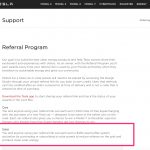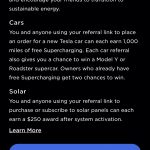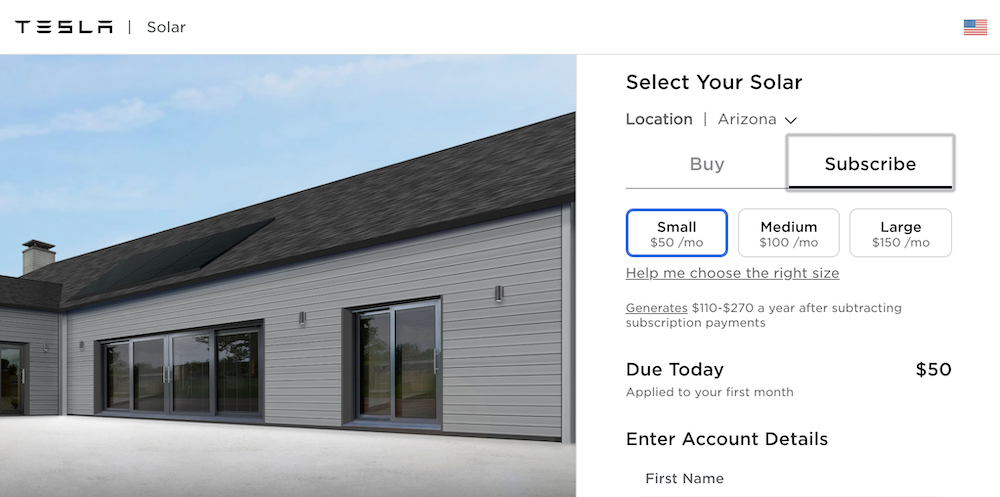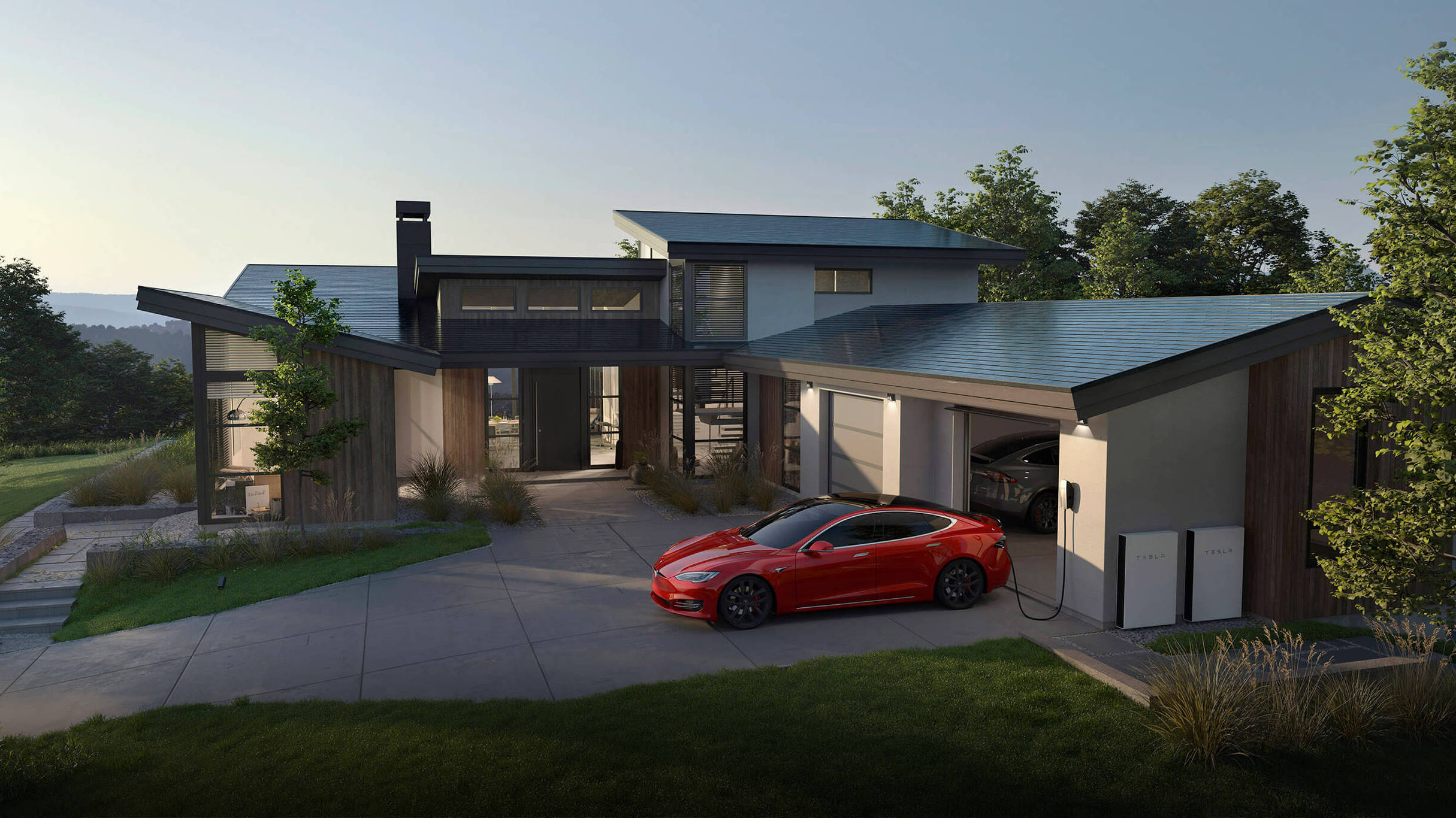
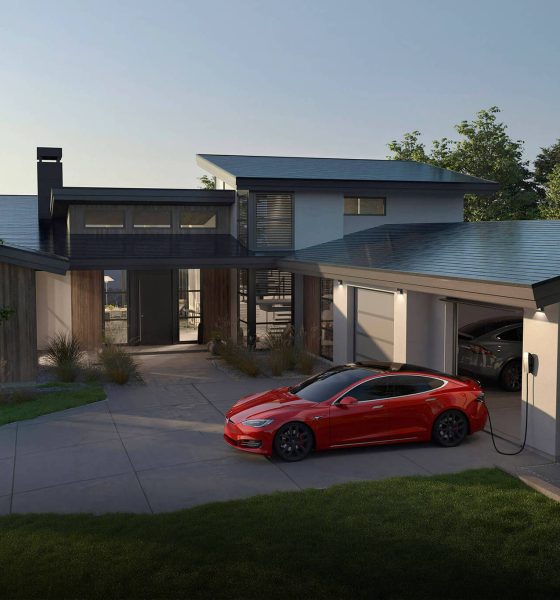
Energy
Tesla is offering Solar customers an incentive in latest referral program update
Tesla is now offering a $250 award to new solar customers who purchase or subscribe to a solar panel system through the company’s referral program. The $250 incentive will also apply to anyone who refers a buyer through a referral link.
“Our goal is to build the best clean energy products and help Tesla owners share their excitement and experiences with others,” Tesla says in its updated referral program page.
For referring customers and their referrals to receive the $250 award, they must place their orders via Design Studio using the referrer’s unique referral link. The award is only applicable to orders placed on or after Oct. 1, 2019.
The referral cannot be credited after the order has been placed or at the time of product delivery. Customers will receive their awards after the solar panel system has been installed and activated.
Tesla’s referral program for solar only includes purchases and subscriptions of its solar panels. At the moment, it does not cover purchases of the Powerwall, Powerpack, or the new Solarglass.
- Tesla offers $250 incentive for Solar panel installations (Credit: Teslarati)
Tesla Solar: Should you buy or subscribe?
Tesla offers a range of options for solar panel customers, depending on the needs and budget of the homeowner.
Buying a solar panel system allows you to choose from a range of four sizes. A small system is most suitable for 1,000 to 2,000-square-foot homes with an average electric bill of $90 to $110 per month. It can generate up to around 14 to 19 kWh per day.
On the other end of the spectrum, a large solar panel system produces an average of 58 to 77 kWh per day. It is best suited for large homes around 4,000 square feet. The price range for buying a solar panel system starts at $7,770 for the small system to $27,750 for the extra-large. This includes installation costs and federal tax incentives.
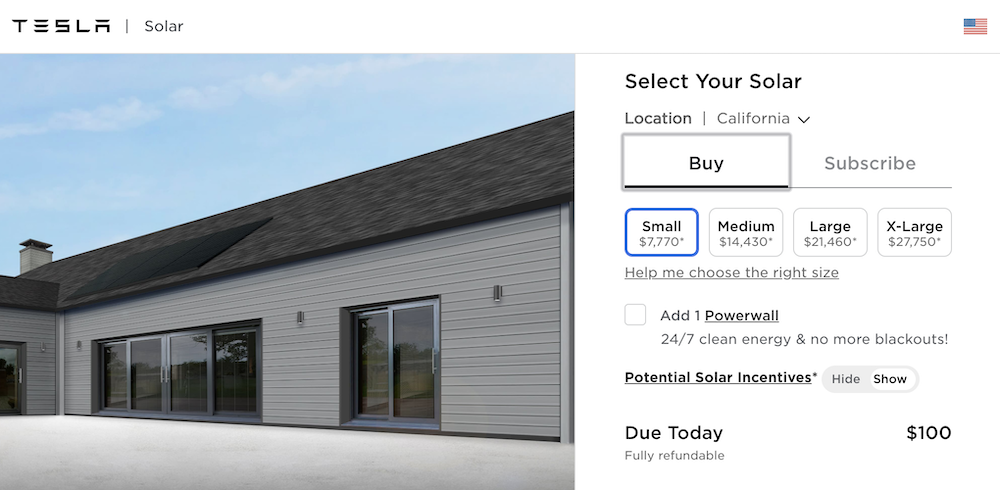
Homeowners can also opt for subscription solar, which makes it cheaper and easier to make the switch to sustainable energy. Tesla’s one-click subscription program is currently available in six states: Arizona, California, Connecticut, Massachusetts, New Jersey, and New Mexico.
Small solar panel systems in all states except for California are available for $50 per month, medium for $100 per month, and large for $150 per month. California users are charged higher fees of $65, $130, and $195 for small, medium, and large systems respectively. All subscription rates also include installation costs.
Canceling a subscription does not come with a cancellation fee, although Tesla charges a removal fee to cover the cost of removing the panels.
Tesla ramps up Solarglass production
The renewed focus on its solar product follows news of Tesla firing up its production of Solarglass, which Musk unveiled in October last year. The company’s new flagship solar product boasts increased power density, easy installation, better durability, and a lower cost per watt compared to conventional solar panels.
Yes, you can walk on the Tesla Solarglass roof. In stilettos, if you want 😉 https://t.co/6wwKJqmPdr
— Elon Musk (@elonmusk) October 26, 2019
Musk previously announced that Tesla is “spooling up its production line rapidly” in hopes of building 1,000 solar roofs per week by the end of 2019.
The company has yet to make a report of its production numbers in its upcoming Q4 2019 earnings call set for Jan. 29. However, according to its third-quarter report, Tesla managed to deploy 43 MW of solar products, down from 93 MW during the same quarter of the previous year, but 43 percent higher than the number of installations in the quarter prior.
News of Tesla ramping up its solar panel production sparked in April last year, as Gigafactory 2 in Buffalo, NY began hiring for at least three dozen job openings. In August of the same year, Tesla obtained a building permit to build a new testing facility for its solar panels in Fremont, CA.

Energy
Tesla Powerwall distribution expands in Australia
Inventory is expected to arrive in late February and official sales are expected to start mid-March 2026.
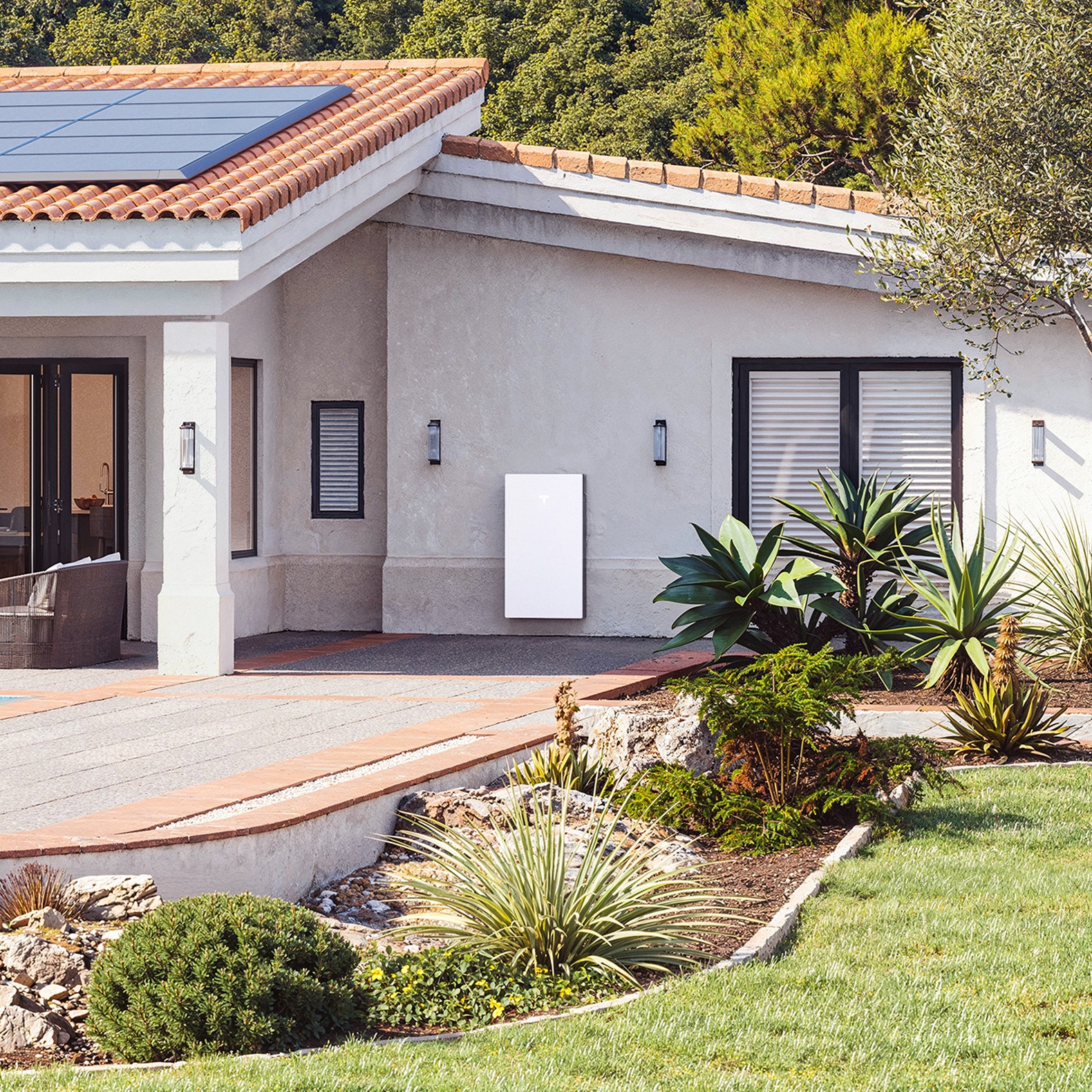
Supply Partners Group has secured a distribution agreement for the Tesla Powerwall in Australia, with inventory expected to arrive in late February and official sales beginning in mid-March 2026.
Under the new agreement, Supply Partners will distribute Tesla Powerwall units and related accessories across its national footprint, as noted in an ecogeneration report. The company said the addition strengthens its position as a distributor focused on premium, established brands.
“We are proud to officially welcome Tesla Powerwall into the Supply Partners portfolio,” Lliam Ricketts, Co-Founder and Director of Innovation at Supply Partners Group, stated.
“Tesla sets a high bar, and we’ve worked hard to earn the opportunity to represent a brand that customers actively ask for. This partnership reflects the strength of our logistics, technical services and customer experience, and it’s a win for installers who want premium options they can trust.”
Supply Partners noted that initial Tesla Powerwall stock will be warehoused locally before full commercial rollout in March. The distributor stated that the timing aligns with renewed growth momentum for the Powerwall, supported by competitive installer pricing, consumer rebates, and continued product and software updates.
“Powerwall is already a category-defining product, and what’s ahead makes it even more compelling,” Ricketts stated. “As pricing sharpens and capability expands, we see a clear runway for installers to confidently spec Powerwall for premium residential installs, backed by Supply Partners’ national distribution footprint and service model.”
Supply Partners noted that a joint go-to-market launch is planned, including Tesla-led training for its sales and technical teams to support installers during the home battery system’s domestic rollout.
Energy
Tesla Megapack Megafactory in Texas advances with major property sale
Stream Realty Partners announced the sale of Buildings 9 and 10 at the Empire West industrial park, which total 1,655,523 square feet.
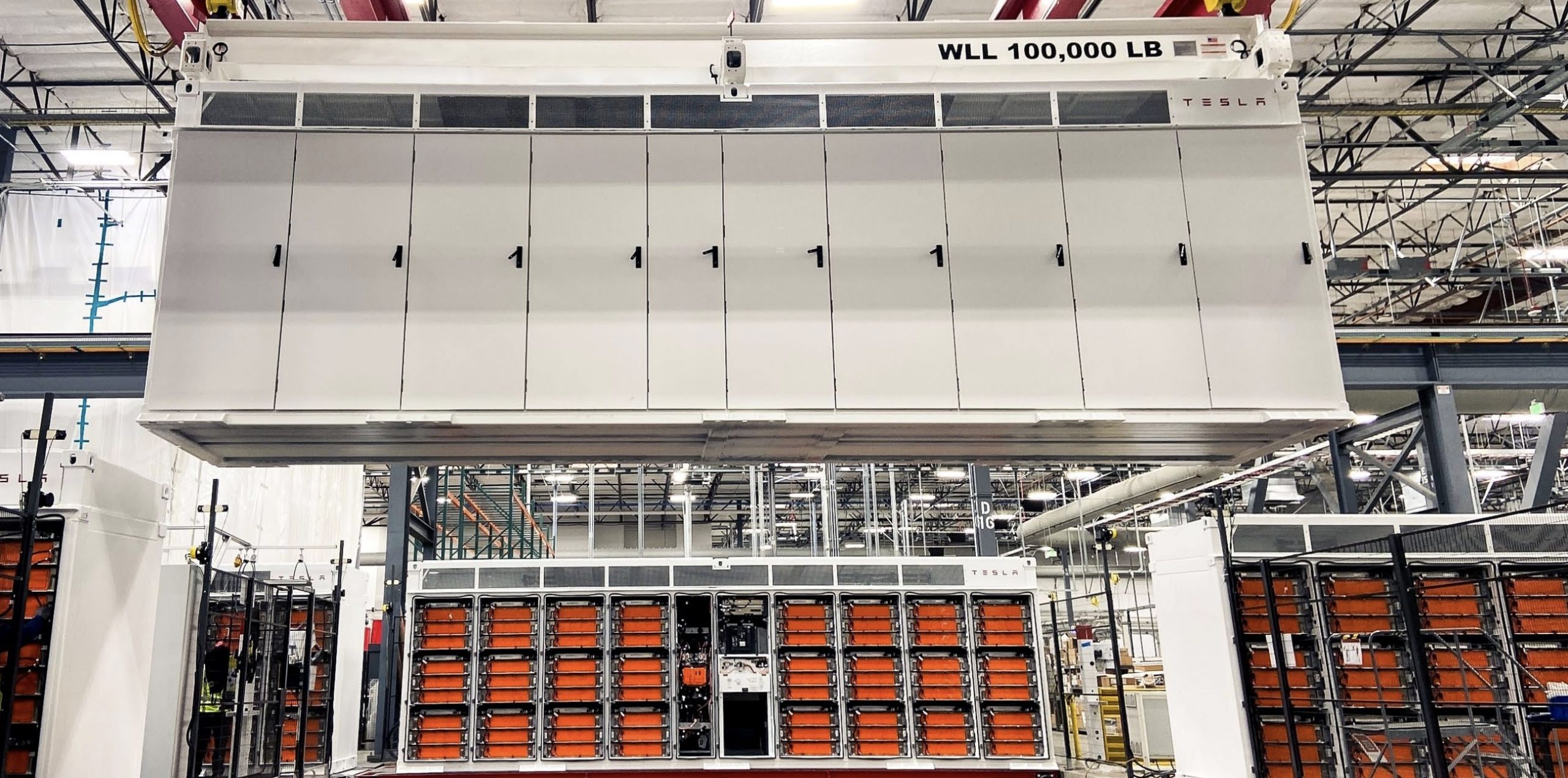
Tesla’s planned Megapack factory in Brookshire, Texas has taken a significant step forward, as two massive industrial buildings fully leased to the company were sold to an institutional investor.
In a press release, Stream Realty Partners announced the sale of Buildings 9 and 10 at the Empire West industrial park, which total 1,655,523 square feet. The properties are 100% leased to Tesla under a long-term agreement and were acquired by BGO on behalf of an institutional investor.
The two facilities, located at 100 Empire Boulevard in Brookshire, Texas, will serve as Tesla’s new Megafactory dedicated to manufacturing Megapack battery systems.
According to local filings previously reported, Tesla plans to invest nearly $200 million into the site. The investment includes approximately $44 million in facility upgrades such as electrical, utility, and HVAC improvements, along with roughly $150 million in manufacturing equipment.
Building 9, spanning roughly 1 million square feet, will function as the primary manufacturing floor where Megapacks are assembled. Building 10, covering approximately 600,000 square feet, will be dedicated to warehousing and logistics operations, supporting storage and distribution of completed battery systems.
Waller County Commissioners have approved a 10-year tax abatement agreement with Tesla, offering up to a 60% property-tax reduction if the company meets hiring and investment targets. Tesla has committed to employing at least 375 people by the end of 2026, increasing to 1,500 by the end of 2028, as noted in an Austin County News Online report.
The Brookshire Megafactory will complement Tesla’s Lathrop Megafactory in California and expand U.S. production capacity for the utility-scale energy storage unit. Megapacks are designed to support grid stabilization and renewable-energy integration, a segment that has become one of Tesla’s fastest-growing businesses.
Energy
Tesla meets Giga New York’s Buffalo job target amid political pressures
Giga New York reported more than 3,460 statewide jobs at the end of 2025, meeting the benchmark tied to its dollar-a-year lease.
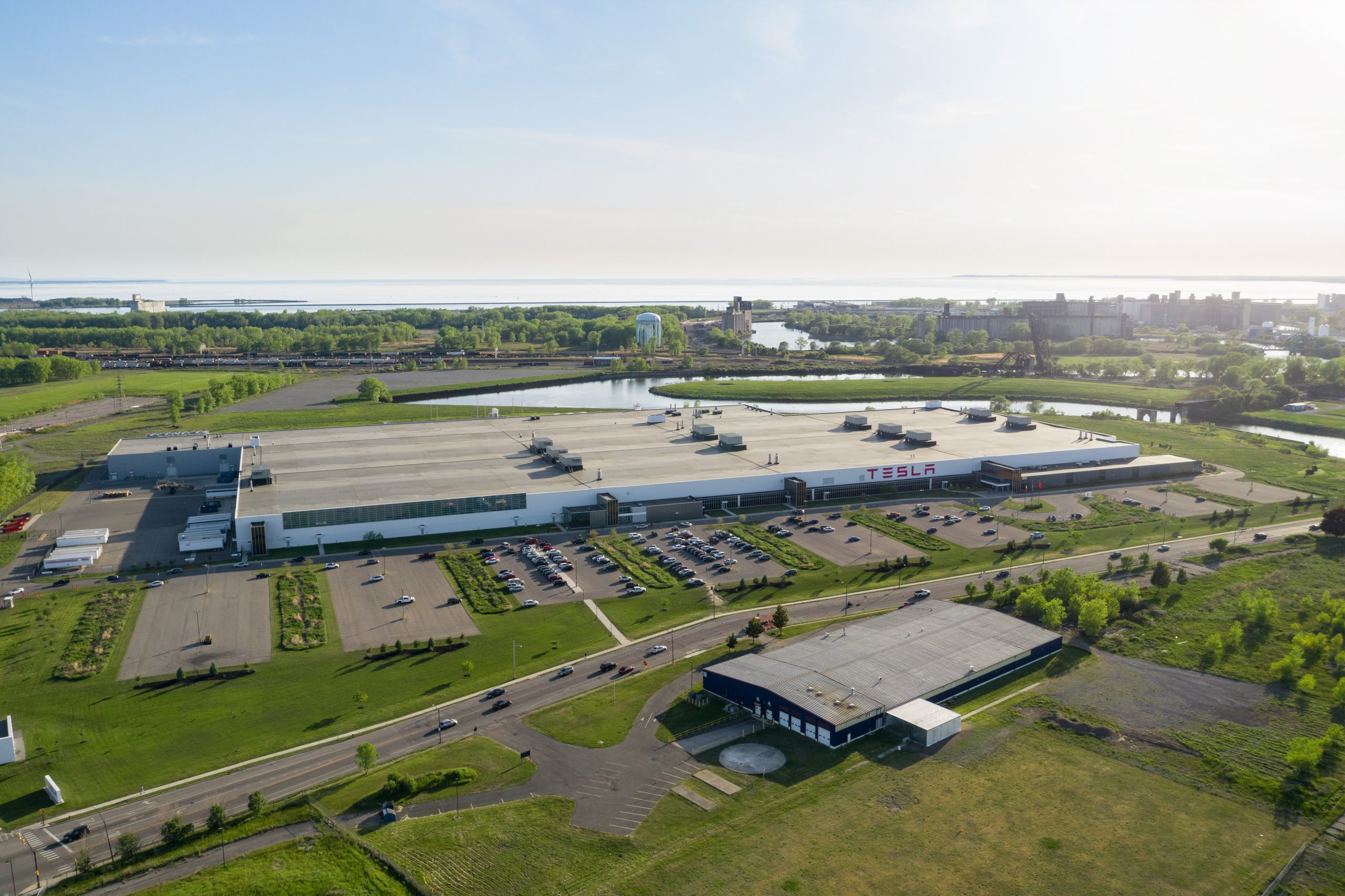
Tesla has surpassed its job commitments at Giga New York in Buffalo, easing pressure from lawmakers who threatened the company with fines, subsidy clawbacks, and dealership license revocations last year.
The company reported more than 3,460 statewide jobs at the end of 2025, meeting the benchmark tied to its dollar-a-year lease at the state-built facility.
As per an employment report reviewed by local media, Tesla employed 2,399 full-time workers at Gigafactory New York and 1,060 additional employees across the state at the end of 2025. Part-time roles pushed the total headcount of Tesla’s New York staff above the 3,460-job target.
The gains stemmed in part from a new Long Island service center, a Buffalo warehouse, and additional showrooms in White Plains and Staten Island. Tesla also said it has invested $350 million in supercomputing infrastructure at the site and has begun manufacturing solar panels.
Empire State Development CEO Hope Knight said the agency was “very happy” with Giga New York’s progress, as noted in a WXXI report. The current lease runs through 2029, and negotiations over updated terms have included potential adjustments to job requirements and future rent payments.
Some lawmakers remain skeptical, however. Assemblymember Pat Burke questioned whether the reported job figures have been fully verified. State Sen. Patricia Fahy has also continued to sponsor legislation that would revoke Tesla’s company-owned dealership licenses in New York. John Kaehny of Reinvent Albany has argued that the project has not delivered the manufacturing impact originally promised as well.
Knight, for her part, maintained that Empire State Development has been making the best of a difficult situation.
“(Empire State Development) has tried to make the best of a very difficult situation. There hasn’t been another use that has come forward that would replace this one, and so to the extent that we’re in this place, the fact that 2,000 families at (Giga New York) are being supported through the activity of this employer. It’s the best that we can have happen,” the CEO noted.
